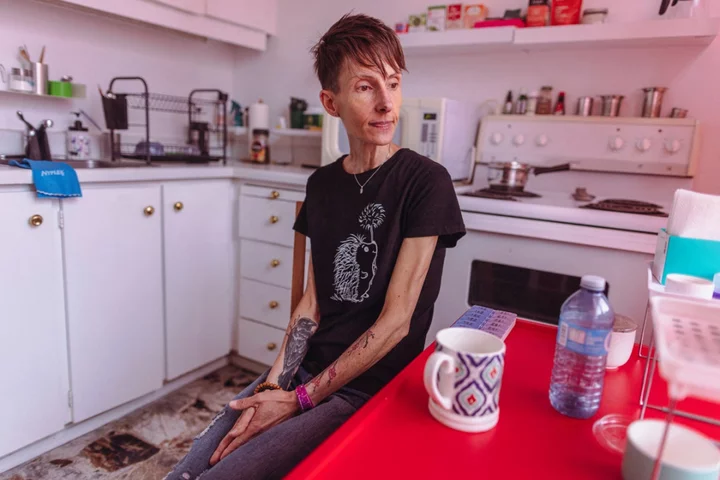A 47-year-old woman who has struggled with severe anorexia for decades has made the decision to die. Soon, she will be able to under Canadian law.
Lisa Pauli from Toronto, Canada, recently opened up about her debilitating eating disorder in an interview with Reuters. Two years ago, Canada expanded its requirements for medically assisted death to allow incurable conditions of mental illness. The new mental health criteria for legalised assisted death goes into effect in March 2024.
Speaking to Reuters, Pauli admitted that she’s had a “warped relationship” with her body since she was eight years old. She currently weighs 92 pounds, can sometimes go days without eating solid food, and is even too weak to carry groceries home without stopping to rest.
The country first legalised medical assistance in dying (MAID) for people with terminal illnesses in 2016. In 2021, the law was expanded to include people with incurable conditions, such as mental illness. The legal changes will soon make Canada one of the only countries in the world to allow those who are not in the end stages of a terminal illness to opt to end their lives.
The 47-year-old told Reuters that every day for her is “hell,” adding: “I’m so tired. I’m done. I’ve tried everything. I feel like I’ve lived my life.”
She explained that she has tried various treatments and has been hospitalised twice for her anorexia, until her psychiatrist Justine Dembo first raised the idea of assisted death in April 2021.
Dembo, who served on an expert panel on assisted death and assesses people for MAID, said she treats it as “a last resort” and tries to determine whether patients have received all available medical and social support available.
However, Pauli maintained that she plans to apply for MAID once she is eligible next year.
The topic of medical assistance in dying has sparked much criticism amongst disability rights and religious advocates, who say that the planned changes will bring additional risks of people opting for MAID because they are unable to access social services, according to Reuters.
Just last month, a quadriplegic woman from Ontario claimed that it would be faster for her to pursue a medically assisted death than it would for her to wait for Canada to provide disability support services. The woman, Rose Finlay, said in a video shared on social media that she can access Canada’s MAID program after a 90-day eligibility assessment, but that accessing disability services could take up to eight months.
Finlay applied for the Ontario Disability Support Program, but realised she would have to wait for at least half a year before she would even have her application approved. Even with ODSP support money, she said she would be living in a “forced poverty” as the most the program pays out is $1,228 a month for all living expenses.
She then explored MAID, even though she does not want to die.
“It’s not what I want,” Finlay told CBC. “But if I don’t receive the support that I need, the outcome is the same. If I get to a point where I am really sick and basically terminally ill anyways, I would like to have other options.”
Meanwhile, proponents of assisted death argue that it is an issue of personal autonomy. In 2021, just over 10,000 people died through medically assisted death – about three per cent of deaths in Canada that year – while more than 30,000 people have died with medical assistance in Canada since 2016, per Reuters.
There are other requirements to be considered eligible for MAID, such as a written application and assessments from two independent medical practitioners. It is also only available to people covered by a Canadian healthcare program.
Medical assistance in dying is legal in several other countries, including New Zealand, Switzerland, Portugal, Spain, Australia, and the Netherlands. In the US, assisted death is legal in 10 states and Washington, DC for patients suffering terminal illness who have less than six months to live.
Read MoreDisabled woman claims Canada is forcing her to die by assisted suicide: ‘It’s not what I want’
A TikTok model made viral videos of her grandmother’s choice to die. Here’s why
Assisted dying law changes ‘matter for MPs but Government will not stand in way’
Coleen Nolan becomes fourth sister in her family to be diagnosed with cancer
These are the phrases working mums want to stop hearing – survey
Montana Brown opens up about struggle to conceive before son’s birth

